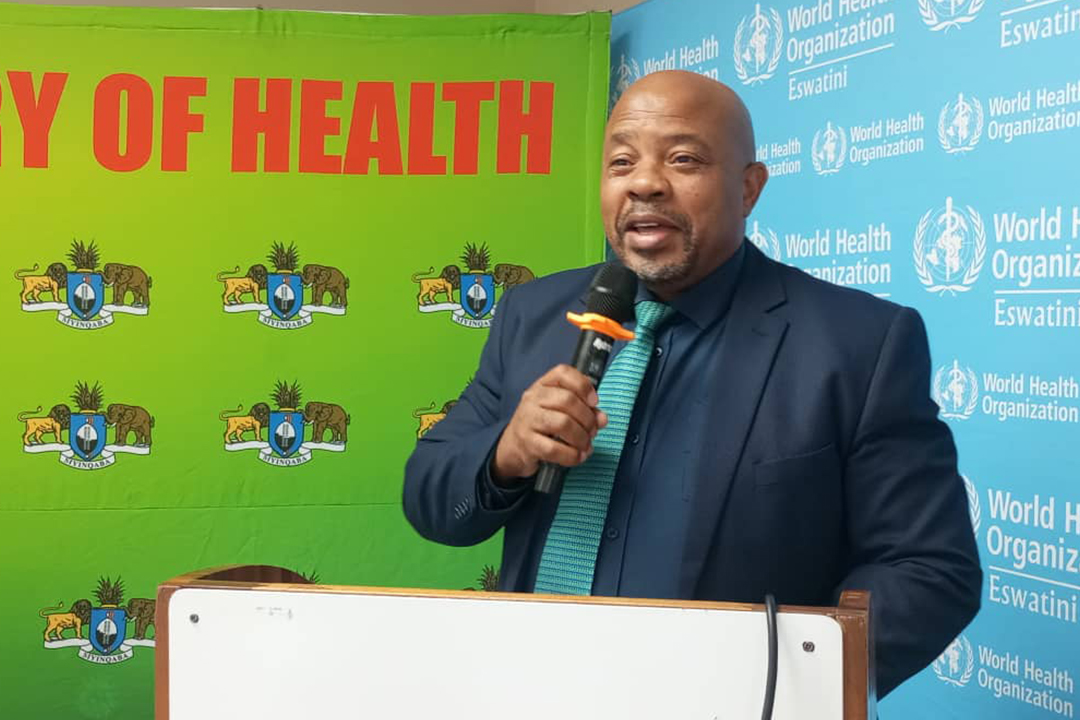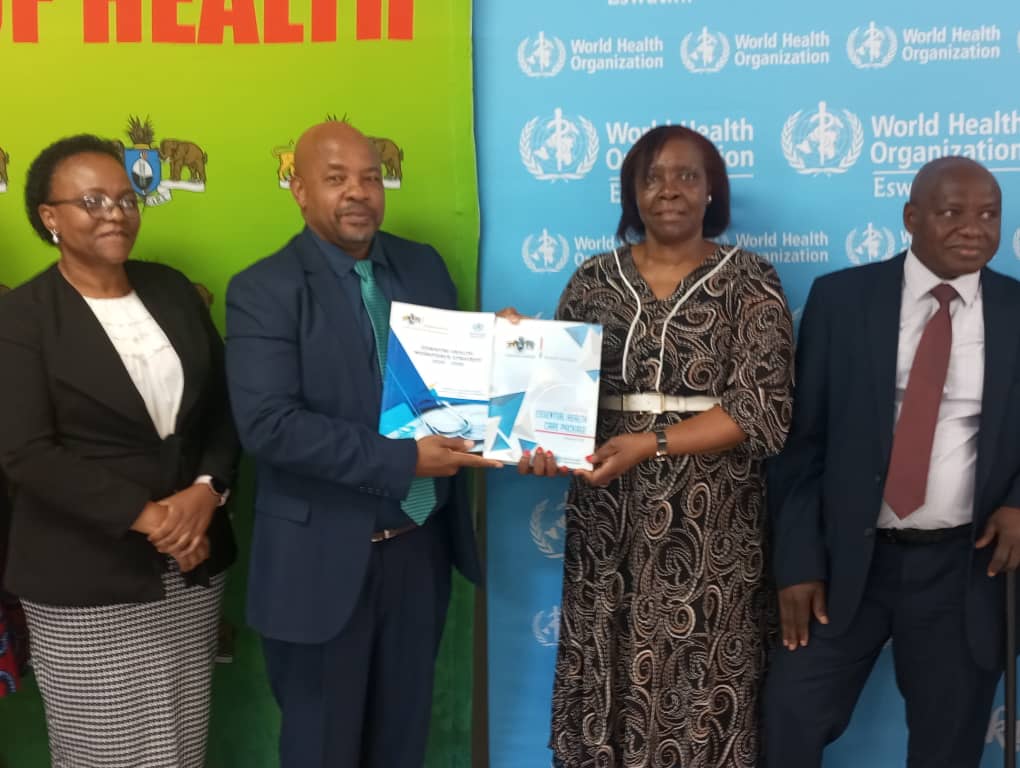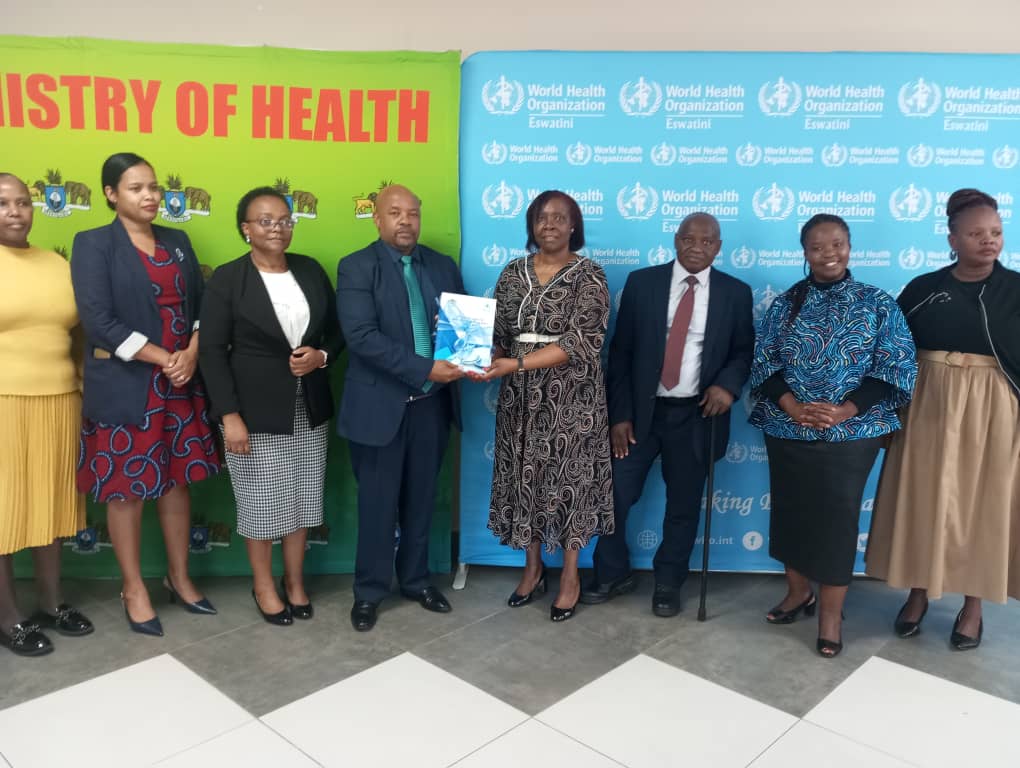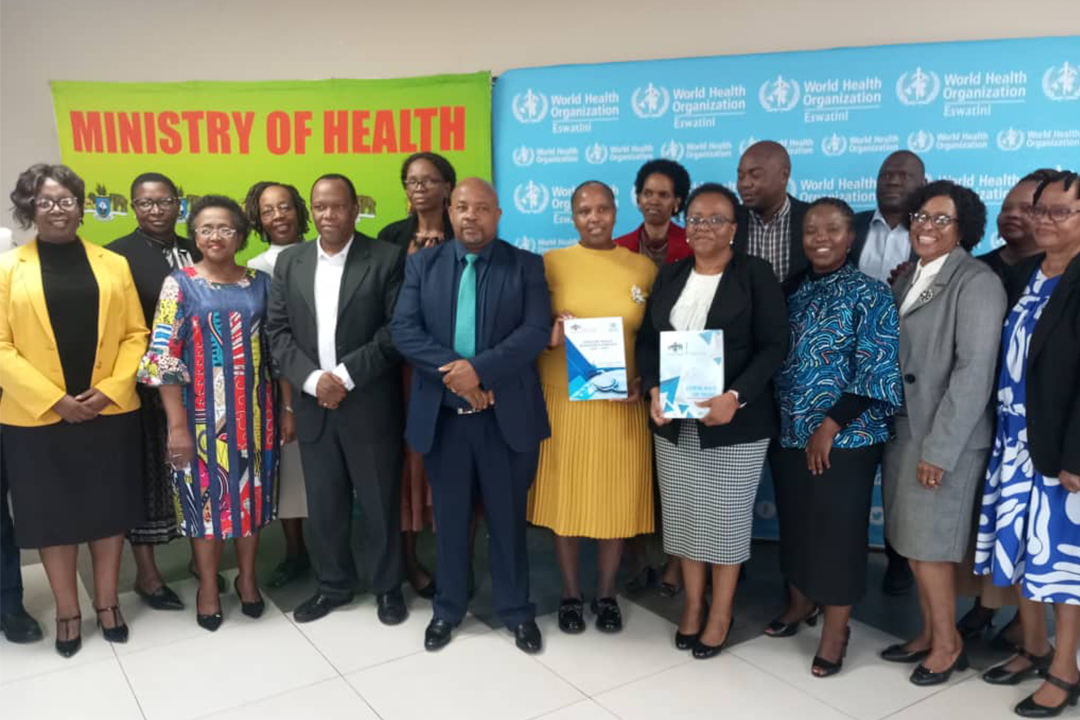By Phesheya Ian Kunene
MBABANE – Eswatini’s healthcare system is on the brink of a major shake-up, following the launch of two key strategies aimed at breathing new life into the sector.
Minister of Health Mduduzi Matsebula described the unveiling of the two documents as a pivotal moment in the country’s journey towards strengthening healthcare delivery.

Addressing guests, the minister said the Essential Healthcare Package (EHP) would drive the transformation of health services across all five levels of the health system, from community clinics to national referral hospitals.
He explained that the EHP was designed in response to the call for Universal Health Coverage, and stressed that it was anchored on the pillars of accessibility, affordability and quality.
Matsebula noted that the package catered for all life stages, from birth to the elderly, and incorporated key public health functions such as promotion, prevention, diagnostics, curative care, rehabilitation and palliative care.

The minister further pointed out that the success of the National Health Sector Strategic Plan (NHSSP) depended heavily on the effective implementation of the EHP, and called for coordinated deployment of healthcare workers, improved infrastructure and enhanced supply of medical equipment and drugs.
He applauded the World Health Organization (WHO) for providing technical assistance during the development process, saying the package reflected the health needs of the population and was informed by local and regional data.
Turning his attention to the Human Resources for Health Strategic Plan, Matsebula highlighted the crucial role of a well-trained and adequately staffed workforce in achieving an efficient healthcare system.
He observed that with the growing burden of both communicable and non-communicable diseases, strategic planning and investment in the health workforce were now more critical than ever.
According to the minister, the new strategy focuses on five key areas: aligning priorities among stakeholders, expanding employment in the health sector, strengthening education and training, optimising workforce management, and enhancing governance structures.
He called on government departments, educational institutions, healthcare providers and communities to play their part in making the strategy a success.

Deputy Director under Clinical Services, Dr Bongiwe Malinga, provided a detailed outline of the Essential Health Package, emphasising its role in promoting comprehensive, equitable healthcare services across the country.
On the other hand, Principal Human Resource Officer Tipho Makama took the audience through the Human Resources for Health Strategic Plan, noting that it was geared towards strengthening workforce governance, improving coordination and aligning priorities to ensure the sector’s resilience.
WHO Representative Dr Susan Tembo added her voice to the calls for action, stressing the need for Eswatini to bolster its health workforce. She said the country required at least 26,500 health workers by 2030 to meet its health goals and urged increased domestic financing to support this expansion.
In closing, Minister Matsebula said investing in health workforce development was an investment in the nation’s future well-being. He expressed gratitude to WHO and the Clinton Health Access Initiative (CHAI) for their technical and financial support, which he said had been instrumental in the development of several key strategic documents.
The launch marked a significant milestone in Eswatini’s quest for a resilient, equitable and efficient healthcare system, with stakeholders pledging to work together to turn the vision into reality.







